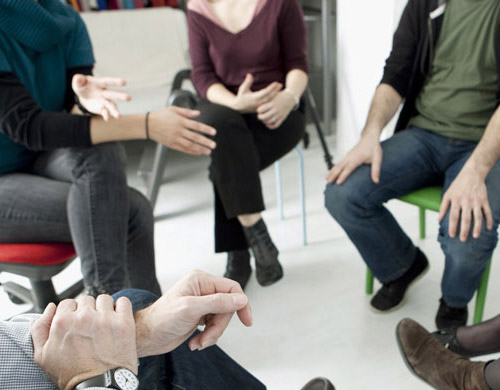It can be so heartbreaking when you or a loved one has difficulties with alcohol or drug addiction, that you don’t know how to approach it. By using professional addiction treatment services it is possible to treat dependence just like other diseases and achieve long term abstinence.
The following page will explain integrated approaches to addiction rehabilitation and how you or someone you love can begin and maintain addiction recovery.
What is Addiction Rehab (Rehabilitation)?
When we talk about addiction ‘rehab’, we refer to the combination of medical and psychotherapeutic treatments used to tackle dependencies on alcohol and drugs (including prescription medications).
Rehab treatment is more effective when it is tailored to suit your unique lifestyle involving a medically-supervised detox, residential and outpatient services, as well as aftercare support.

Facts & Statistics about Addiction in San Joaquin
Prevalence of Substance Use Disorder, by Drug Type
(IN THOUSANDS)
- 2,7578.5%Any Substance
- 2,0886.4%Alcohol
- 1,0683.3%Ilicit Drugs
- 2060.6%Pain Medication
Drug- and Alcohol-Induced Deaths by Age Group, California, 2016
- Alcohol-Induced
- Drug-Induced
- 18 to 250.5
- 9.6
- 26 to 354.3
- 13.9
- 36 to 6424.2
- 22.9
- 65+23.7
- 9.4
Drug Use, by Selected Type and Age Group California, 2015 to 2016
- 12 to 17
- 18 to 25
- 26+
- Marijuana*13.2%
- 34.0%
- 13.5%
- Misuse of Pain Medications3.5%
- 8.0%
- 4.3%
- Cocaine0.8%
- 7.2%
- 1.8%
- Heroin0%
- 0.4%
- 0.2%
What are the treatment options available in San Joaquin?
A consolidated treatment approach provides a successful way to tackle the root causes of drug or alcohol use disorders. Substance dependence should be treated but building new life skills encourages you to overcome the problems that caused your addiction to drugs or alcohol.

Private Residential Programs
A residential rehab program is when you live at the treatment facility and receive all your treatment within the property. It is unquestionably beneficial to have 24/7 care and treatment options. If you stay at a treatment center you are free from many of the triggers in your home environment that may influence your substance abuse.
When you stay in a safe and secure environment, you can prevent relapse and improve your chances of finishing your rehab program.
Inpatient rehab programs are useful for patients with intense alcohol or drug dependencies, co-occurring illnesses, or dual diagnoses.
We understand that the first few months of recovery are usually challenging and after a residential treatment program, you must stay focused so that you can maintain long term recovery. Finishing your residential treatment program is the start of your newfound independence and you need to focus on goal-setting for your substance-free future.
Do You Need Help?
We work together towards sobriety.

Sober Living Programs
Sober living treatment programs are designed to enable you to have more stability in your life, with guidance and supportive structures. Sober living programs feature:
- Round-the-clock check-ins from the house manager
- Creating guidelines to manage your behavior in recovery
- Guiding you to develop life-changing relationships with peers who have similar challenges to you
Outpatient Programs
Outpatient treatment programs offer greater flexibility as you can continue with work commitments while living at home, but you visit the rehab facility for any treatments.
Outpatient programs assist you with:
- Education focusing on substance use
- Counseling and talking therapies through the use of group sessions and individual sessions with a skilled addiction counselor. – Outpatient programs typically run from a few months to more than a year, and your individual needs will determine the necessary duration of treatment.
Detox Only Programs
A detox program is the first step in drug or alcohol rehab and is performed to eliminate your physical dependency on a drug by removing all traces of it from your body. During detox you will go through withdrawal symptoms as your body begins to work independently of the substance it was physically reliant on.
Once you tackle the most challenging aspects of physical withdrawal you will begin the second phase of your rehab journey, working on the root causes of your dependency to break the cycle of abuse. A number of substances result in protracted cravings and withdrawal symptoms after you have been through the detox phase. Building on vital skills can minimize your odds of relapse as you work on your new life.
Paying for Private Treatment
If you opt for private treatment, you can contact your healthcare provider to make a claim or pay the treatment costs directly. Most insurance companies contribute to some of the costs associated with addiction rehab, including a medically-assisted detox, rehab therapy and medication, as well as post-treatment support. The amount covered for your rehab treatment is set by your provider and the terms of your policy.
Always determine the amount of cover you can claim before enrolling in a treatment plan. You can visit our Verify Your Insurance page for more details on the cover that is available to you.
If you decide not to claim from your health insurance plan, you will need to fund your treatment. Some treatment providers may extend payment plans to clients who find the costs unaffordable upfront.
State Funded Programs
If you have a substance dependence but do not have the funds to fund private treatment, you may search for a state-funded rehab program.
By using funds allocated from Medicaid and federal/state budgets, state-funded programs can subsidize your recovery including:
- Medically-assisted detox programs
- Addiction counseling and extended support
These sorts of programs are designed to support people in low income households or those with no health insurance. For you to apply you need:
- Proof of where you live
- Proof of income
- History of your medical records and details about your addiction issues
- Proof that you reside in the US legally
Further details about the application process can be found on https://www.grants.gov/
You can also identify direct contact details for your state agency

The following state-funded addiction rehab programs are available in San Joaquin:
Nuestra Casa Recovery Home
1414 West Kearney Boulevard, Fresno, CA 93706
559-485-0501
www.hispaniccommission.orgTurning Point of Central California Quest House
2731 West Olive Avenue, Fresno, CA 93728
559-233-5096
tpocc.org/questhouseMental Health Systems Inc Fresno IMPACT
2550 West Clinton Avenue, Buildings A and H, Fresno, CA 93705
559-264-7521
www.mhsinc.org
Maintaining Addiction Recovery in San Joaquin
You may experience some initial challenges in the early stages of recovery. When you were in rehab the environment was controlled and you had support from professionals. As you adjust to life after rehab it is very likely that you will find yourself in situations that you still need to learn to address. Clients who had severe dependencies find long term recovery more difficult when they leave rehab if they do not have a social support structure. Relapse is a possibility without the right aftercare and support groups to help you navigate your new life.
The following AA/NA meetings are available in San Joaquin:
How It Is
Men: 201 E Weber Ave., Stockton, CA 95202
Sunday: 8:30 am-10:00 am
http://www.centralvalleynorthna.org/Inner Peace
Just for Today: 1329 W 11th St., Tracy, CA 95376
Sunday: 6:00 pm-7:15 pm
http://www.centralvalleynorthna.org/We Do Recover
Book Study: 275 N Main St., Manteca, CA 95336
Wednesday: 7:00 pm-8:30 pm
http://www.centralvalleynorthna.org/
Aftercare & Alumni Programs
Aftercare programs are an extension of rehab once you leave the rehab center. By participating in aftercare support, you can limit the risk of relapse which hurts up to 60% of people who have recently finished treatment. It is an essential service provided by most treatment centres.
Once you get close to the end of your rehab program, you will consider the services most beneficial to you long-term, and an aftercare package will be created to help you sustain from drinking or taking drugs. Individuals who finish their treatment programs will gain access to an alumni community program such as ours, which provides you the chance to engage with peers and staff.
You will be invited to attend special events, participate in a number of initiatives, build connections, and receive advice from other ex-clients who are also in recovery. Additionally, you have the opportunity to support others if you choose to.
Support Groups (Fellowship Meetings)
Support groups enable lasting recovery because they recognize the vital role that social structures play in maintaining addiction recovery. Support groups including AA (Alcoholics Anonymous) and NA (Narcotics Anonymous) offer regular support utilizing the 12 step principles and regular meetings.

Attending support group meetings provides you with an opportunity to you to connect with other people and inspire others with your own experiences. Many people in recovery attend nearby meetings to help them in the early and later stages of addiction recovery. Support groups provide them with the important tools to stay sober, and allow them to be accountable for their own journey in recovery.
Support for Families & Children Affected by Addiction
Addiction hurts everyone living in the household to different degrees. Although the person battling with addiction certainly needs all the help they can get, the other family members also need assistance.
Family support groups provide two key benefits: you can help yourself and the individual in the early stages of recovery. Some helpful support groups for families and children affected by addiction include:
- Parents of Addicted Loved Ones
- SMART Recovery Family & Friends
- NAMI Family Support Groups
- Al-Anon
- Families Anonymous
- Alateen
- Nar-Anon










